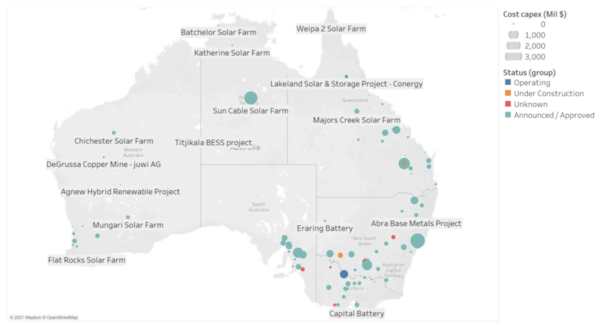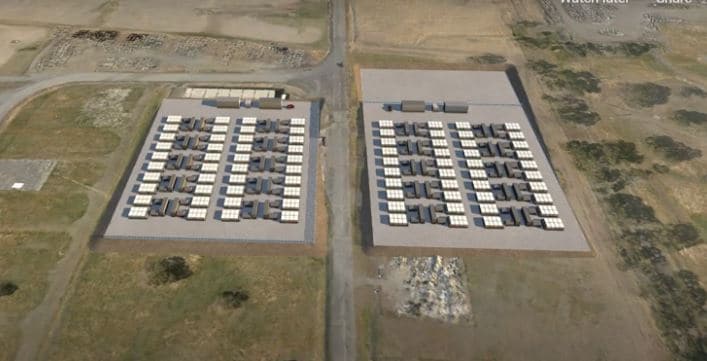In 2015, Sunwiz Managing Director Warwick Johnston warned large-scale solar developers that rooftop PV installations would end up eating their lunch.
“Now what I see is more nuanced and circular than that – renewables will eat itself,” he tells pv magazine Australia. “Transmission takes a long time to built … while you’re waiting for that transmission, there will be volatile and higher electricity prices. The natural response to that will be to install rooftop PV or install storage, potentially local storage, potentially local transmission-enhancing storage, all that sort of stuff.”
He said that batteries will be completed faster than transmission, leading to a decline in the economic justification for transmission. However, transmission projects will still be developed, which in turn will diminish the economic rationale for batteries.
While this business case conundrum most pointedly impacts big battery projects, which earn most of their revenue from spot markets, distributed energy resources like rooftop solar and network batteries will continue to utterly transform energy systems.
In April, Gabrielle Kuiper, a director of the Superpower Institute, noted the findings of ITP Renewables’ modeling, which suggests that once Australia reaches its saturation point with distributed energy resources, rooftop solar combined with battery trading could potentially reduce the evening peak of the wholesale market by 67% to 92%.
The demand forecasts which have underpinned much of Australia’s transition modeling to date are increasingly being questioned, given the fact models – as Kuiper points out – have the shortfall of relying on a past which is likely completely different to the energy future.
Johnston describes the assumption that Australia should be building copious amounts of transmission as something that has remained, until vey recently, “unexamined.” A growing choir of industry insiders are questioning whether the current extent of planned transmission projects are in fact vital, but this is also a relatively recent shift.

Authored by BELLA PEACOCK
This content is protected by copyright and may not be reused. If you want to cooperate with us and would like to reuse some of our content, please contact: editors@pv-magazine.com.








Well, the naysayers cannot complain about the lack of reliability of renewables and simultaneously complain about redundancy.
To have a system that is robust and reliable during heat waves, bush fires, cloudy winters and night time lulls, we need redundancy.
That redundancy can then feed into lower prices, and medium and long term storage as well as exports of hydrogen.
This is what we want!